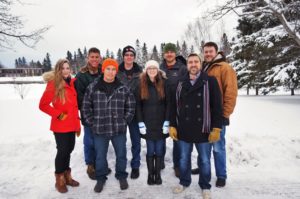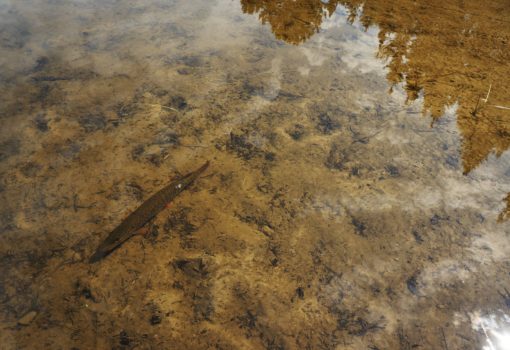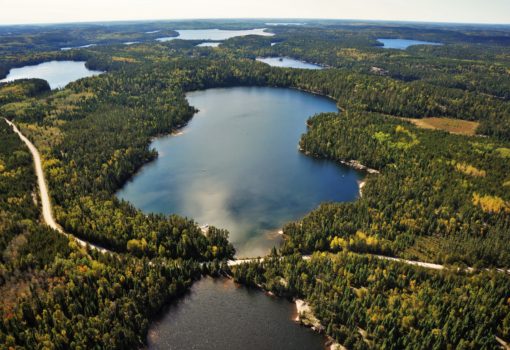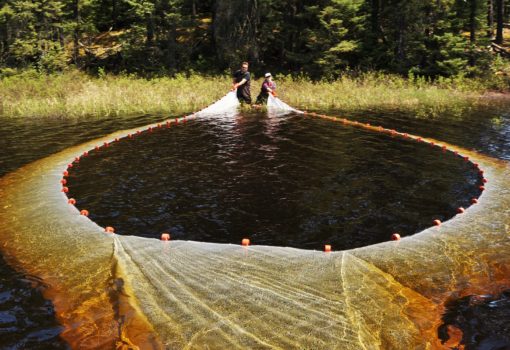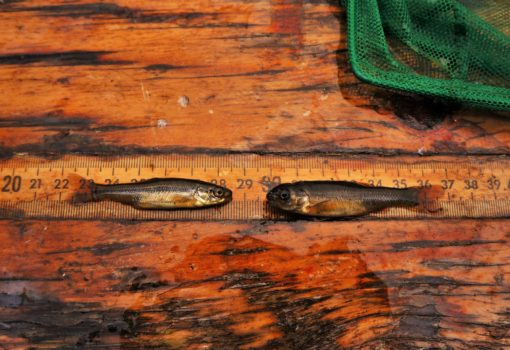
Bioenergetics
Understanding optimal life histories in the field can be greatly improved by understanding energy intake rates and how that energy is allocated. Using a combination of field studies, laboratory-based physiological experiments, analytical methods, and mathematical models, our group applies bioenergetic theory to wild populations of fish to understand how they respond to ecological change. Past […]


